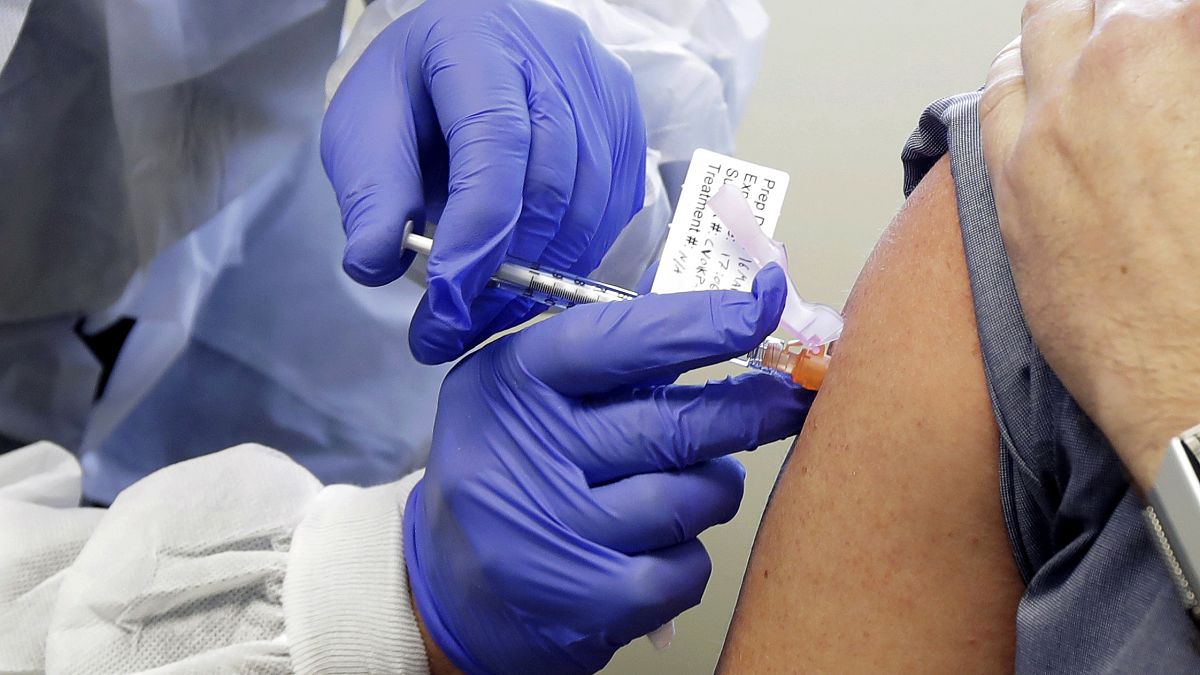France's research minister said that it would take at least 18 months to get a coronavirus vaccine after US President Donald Trump said there would be a vaccine by the end of the year.
Much of the world is looking ahead to when a vaccine will be available to protect against coronavirus as without one it's unlikely that countries will be able to fully lift social distancing policies.
But even as European states ease lockdown restrictions, with travel set to restart mid-June, a vaccine is at least 18 months away, many officials have warned.
"Vaccine research typically takes several years. What the laboratories and the researchers tell us is that the acceleration we have seen in the development of clinical trials gives us hope for a vaccine within 18 months," said French research minister Frédérique Vidal in a radio interview with Europe 1 on Saturday.
"It is unreasonable to think that we can go faster than that, without endangering people's safety," she added.
Vidal's comments contradict those made by US President Donald Trump who said on Friday the US was "looking to get it [a vaccine] by the end of the year if we can...or shortly thereafter."
A former pharmaceutical executive, serving as the Trump administration's virus authority, echoed those predictions, stating that a vaccine could be delivered by late 2020.
Dr Hans Kluge, the World Health Organisation's regional director for Europe, said in a radio interview on Friday that obtaining a vaccine in even a year was an "optimistic" timeline.
"A year and a half is more realistic," he said, adding that medical professionals in contact with the virus should be vaccinated first.
The question of who would get access to any potential vaccine caused an uproar this past week after Sanofi CEO Paul Hudson said in an interview with Bloomberg that the United States would get access first after funding the research first.
Prime Minister Edouard Philippe said he spoke with the company afterwards, emphasising that "a COVID-19 vaccine will have to be a global public good. Equal access for everyone to the vaccine is not negotiable."
The company has since walked back the comments stating that they are in conversation with European countries.
More than 100 vaccine research projects exist around the world and around ten clinical trials are already underway.
